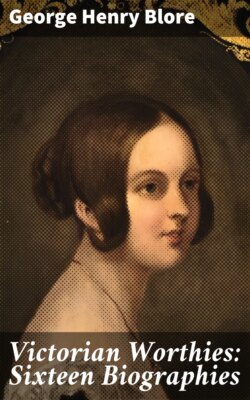Читать книгу Victorian Worthies: Sixteen Biographies - George Henry Blore - Страница 7
На сайте Литреса книга снята с продажи.
ОглавлениеBut whatever offence Carlyle committed with his ungovernable tongue or pen, he had rare virtues in conduct. His generosity was as unassuming as it was persistent; and it began at home. Long before he was free from anxieties about money for himself, he was helping two of his brothers to make a career, one in agriculture, and the other in medicine. In his latter days he regularly gave away large sums in such a way that no one knew the source from which they came. His letters show a deep tenderness of affection for his mother, his wife, and others of the family; and the humble Annandale home was always in his thoughts. His charity embraced even those whose claim on him was but indirect. When his wife was dead, he could remember to celebrate her birthday by sending a present to her old nurse. He was scrupulous in money-dealing and frugal in all matters of personal comfort; in his innermost thoughts he was always pure-hearted and sincere; for nothing on earth would he traffic in his independence or in adherence to the truth.
His style has not largely influenced other historians; and this is as well, since imitations of it easily fall into mere obscurity and extravagance. But his historical method has been of great value, the patient study of original authorities, the copious references quoted, the careful indexing, all being proof how anxious he was that the subject should be presented clearly and veraciously, rather than that the books should shine as literary performances. How far the principles which he valued and taught have spread it is difficult to say. Party politicians still appeal to the sacred name of liberty without inquiring what true liberty means; publicists still speak as if the material gains of modern life, cheap food and machine-made products, meant nothing but advance in the history of the human race; but there are others who look to the spiritual factors and wish to enlarge the bounds of political economy.
The writings of Carlyle, and of Ruskin, on whom fell the prophet's mantle, certainly made their influence felt in later books devoted to that once 'dismal' science. Few can be quite indifferent to the man or to his message. Those who demand moderation, clearness, and Attic simplicity, will be repelled by his extravagances or by his mysticism. Others will be attracted by his glowing imagination and by his fiery eloquence, and will reserve for him a foremost place in their affections. These will echo the words which Emerson was heard to say on his death-bed, when his eyes fell on a portrait of the familiar rugged features, 'That is the man, my man'.
sir robert peel From the painting by J. Linnell in the National Portrait Gallery
